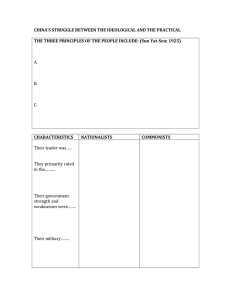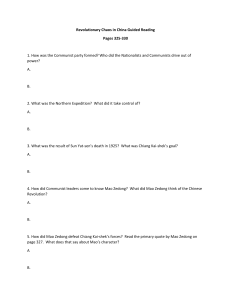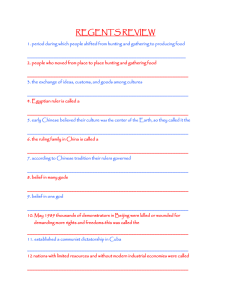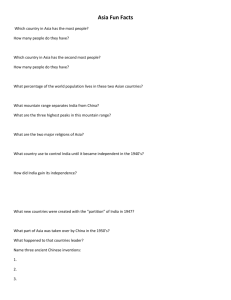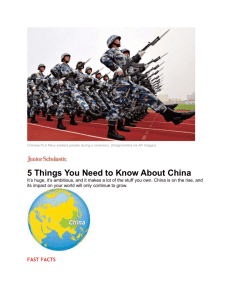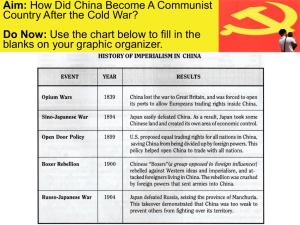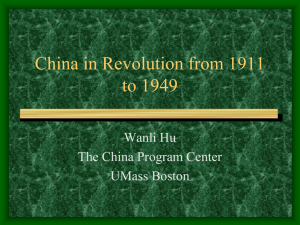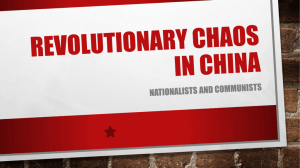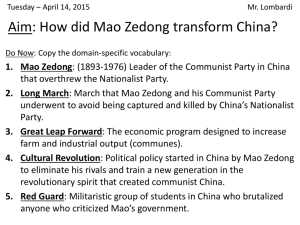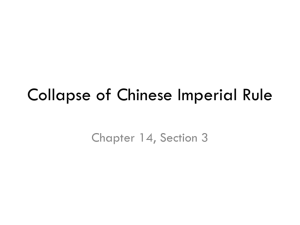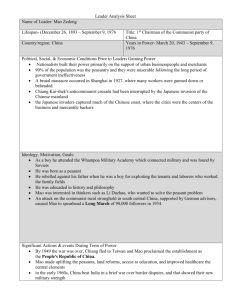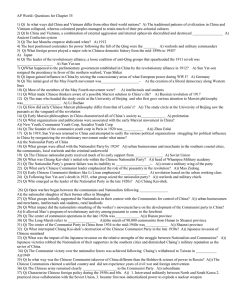20th Century China
advertisement
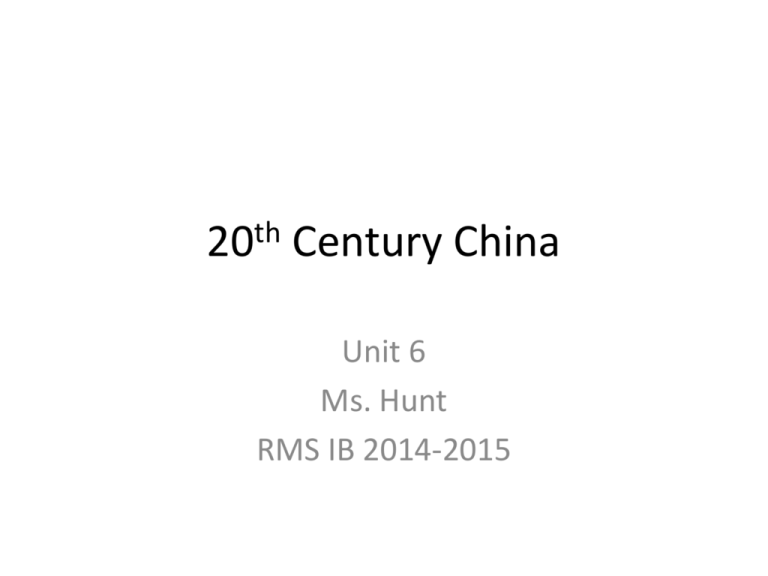
th 20 Century China Unit 6 Ms. Hunt RMS IB 2014-2015 Before the World Wars • Opium Wars = Great Britain vs. China • Why? China did not want to trade with Great Britain • Treaty of Nanking, 1842, ends Opium Wars – Great Britain gains trade with China and Hong Kong • Taiping RebellionChinese peasants angry about treaty – 14 years long – 20 million people died Boxer Rebellion • Boxer Rebellion, 1900 – Goal- remove all foreigners from China and end the Qing Dynasty – Wanted to be isolated“Isolationism” – European nations and the US helped the Chinese government defeat the Boxers Poster- Eight Nation Alliance How does the poster help us to understand the following questions: • Why do you think China wished to not use isolationism after the Opium Wars? • How did other nations feel about their want to join the global stage? China’s New Republic • Sun Yat-sen- founder of the Chinese Nationalist Party – 1911 took control of China – Led China through WWI – Was a member of the Allied Powers • During World Wars, other political groups began to emerge Political Parties Divide China • Following WWI, Chiang Kai-shek becomes the new leader of China • Civil War- 1930 – Chiang (Nationalist) against the Communist party – Chiang was victorious! • 1934- The Long March – Communist retreat – 100,000 people marched over 6,000 miles China and WWII • World War II- China is invaded by the Japanese • Chiang needs the help of the Communist Red Army – Does not have enough resources (men, weapons, support) • Join together to fight Japanese during WWII • After WWII-1945-1949Communist and Nationalist parties fight again Communist China • 1949- Communists take control of China and create the People’s Republic of China – Mao Zedong- new ruler • Communismgovernment holds all of the power and the production of the people Mao Zedong and Propaganda First Communist Actions • All land was divided among the people to work • Great Leap Forward- plan for economic development – – – – Huge farms created Over 25,000 people lived and worked farm Small industry (not creating a lot of goods) Education and health care provided to farm workers • Ruined the economy! – 20 million people starved – Millions more died from disease • Goal- remove opposition from the Communist party • “Red Guards”- citizens who worked to find those who spoke out against the Communist Party – Anyone who had contact with or wished for Westernization was punished – Erase the Four Olds – Old Customs – Old Culture – Old Ideology – Old Habits – Creation of chaos! • 1979- Mao dies and Cultural Revolution ends Cultural Revolution “The invincible thoughts of Mao Zedong illuminates the stages of revolutionary art.” Post Revolution- Cultural Clashes • Blend of old and new Chinese culture • Deng Xiaoping- leader of China following Mao’s death • Made changes = more freedom! • Allowed for land ownership • Created political relationships with other nations (no isolationism) • Still controlled basic rights Think about it!- Why do you think the magazine asks whether Deng is a friend or foe? Civil Unrest • Communist government still controlled people’s rights and freedoms • Chinese people “This is not fair!” • Tiananmen Square- April 1989, people demonstrated against Communist government – Not allowed to practice their freedom of speech – Brutal attack by the government killed many demonstrators
